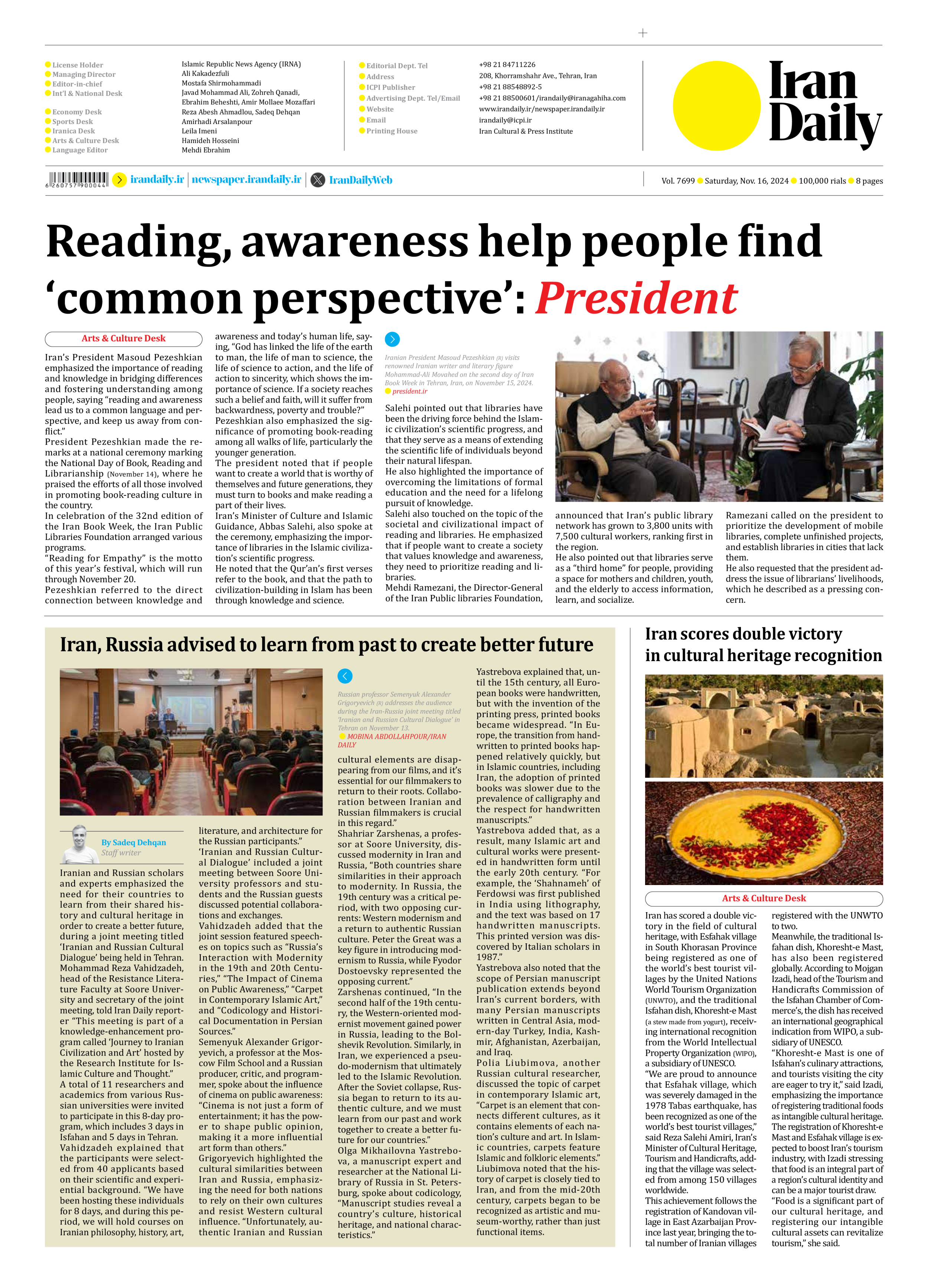
Reading, awareness help people find ‘common perspective’: President
Iran’s President Masoud Pezeshkian emphasized the importance of reading and knowledge in bridging differences and fostering understanding among people, saying “reading and awareness lead us to a common language and perspective, and keep us away from conflict.”
President Pezeshkian made the remarks at a national ceremony marking the National Day of Book, Reading and Librarianship (November 14), where he praised the efforts of all those involved in promoting book-reading culture in the country.
In celebration of the 32nd edition of the Iran Book Week, the Iran Public Libraries Foundation arranged various programs.
“Reading for Empathy” is the motto of this year’s festival, which will run through November 20.
Pezeshkian referred to the direct connection between knowledge and awareness and today’s human life, saying, “God has linked the life of the earth to man, the life of man to science, the life of science to action, and the life of action to sincerity, which shows the importance of science. If a society reaches such a belief and faith, will it suffer from backwardness, poverty and trouble?”
Pezeshkian also emphasized the significance of promoting book-reading among all walks of life, particularly the younger generation.
The president noted that if people want to create a world that is worthy of themselves and future generations, they must turn to books and make reading a part of their lives.
Iran’s Minister of Culture and Islamic Guidance, Abbas Salehi, also spoke at the ceremony, emphasizing the importance of libraries in the Islamic civilization’s scientific progress.
He noted that the Qur’an’s first verses refer to the book, and that the path to civilization-building in Islam has been through knowledge and science.
Salehi pointed out that libraries have been the driving force behind the Islamic civilization’s scientific progress, and that they serve as a means of extending the scientific life of individuals beyond their natural lifespan.
He also highlighted the importance of overcoming the limitations of formal education and the need for a lifelong pursuit of knowledge.
Salehi also touched on the topic of the societal and civilizational impact of reading and libraries. He emphasized that if people want to create a society that values knowledge and awareness, they need to prioritize reading and libraries.
Mehdi Ramezani, the Director-General of the Iran Public libraries Foundation, announced that Iran’s public library network has grown to 3,800 units with 7,500 cultural workers, ranking first in the region.
He also pointed out that libraries serve as a “third home” for people, providing a space for mothers and children, youth, and the elderly to access information, learn, and socialize.
Ramezani called on the president to prioritize the development of mobile libraries, complete unfinished projects, and establish libraries in cities that lack them.
He also requested that the president address the issue of librarians’ livelihoods, which he described as a pressing concern.







